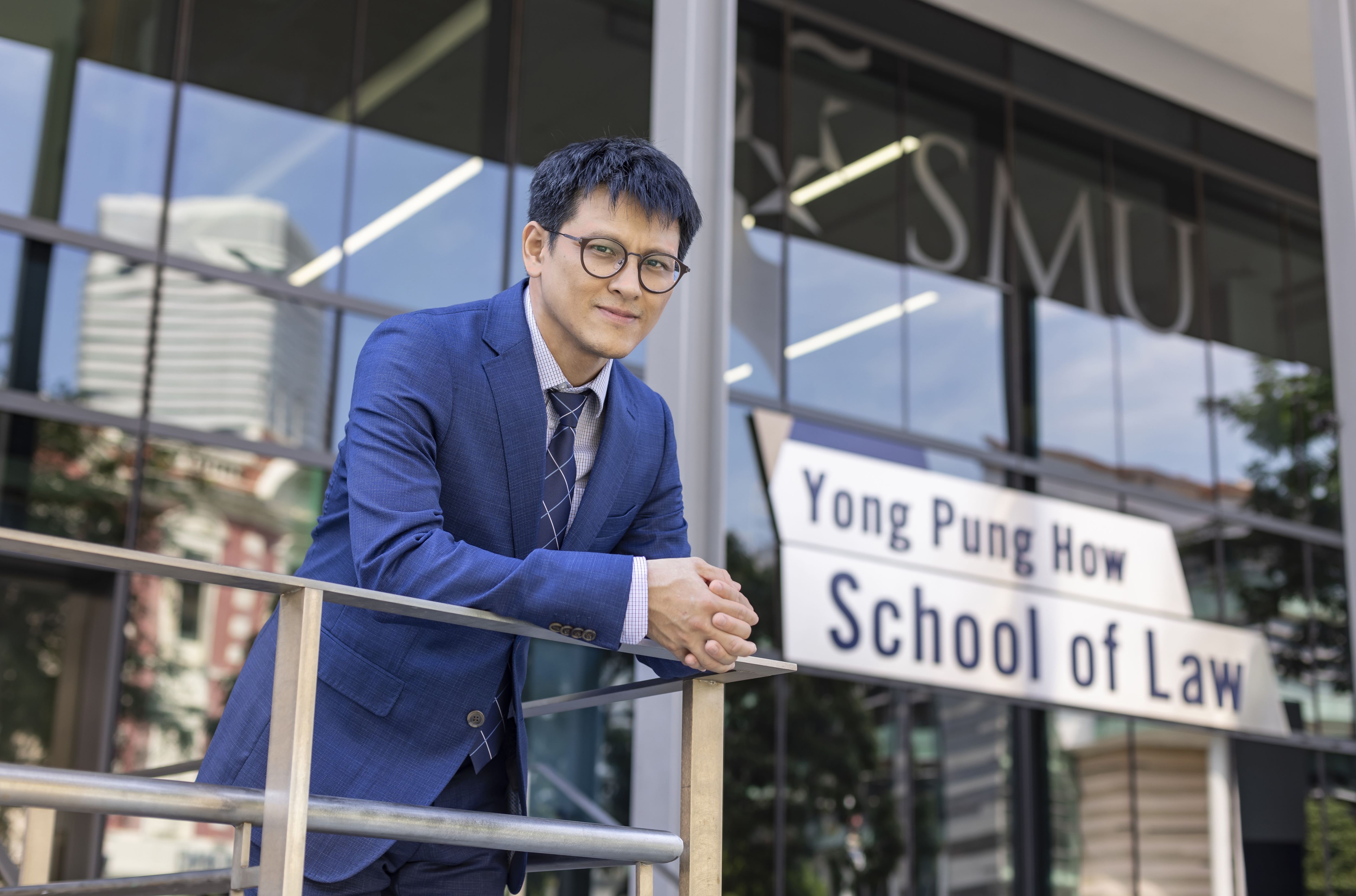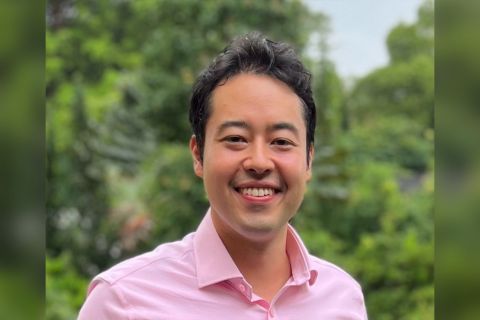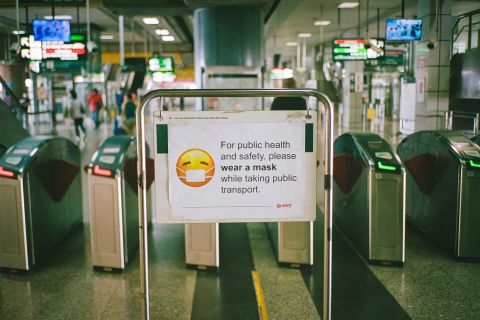
By Stuart Pallister
SMU Office of Research – A few years ago, Singapore Management University Associate Professor of Law, Liu Han-Wei, produced a comprehensive paper on regulating AI machine learning with a co-researcher from Taiwan’s National Tsing Hua University, called ‘Artificial Intelligence and Global Trade Governance: A Pluralist Agenda.’ The wide-ranging paper, which came about following a workshop organised by Harvard Law School, was published in the 2020 summer volume of the Harvard International Law Journal.
In the article, described as the first of its kind, the researchers ‘map out imminent challenges facing the World Trade Organization (WTO) against the emergence of artificial intelligence.’
“We try to explore the implications for AI, not only from the perspective of how to regulate AI as a domestic law matter but also as it could have a spillover effect for other jurisdictions,” Professor Liu told the Office of Research.
They examine in detail four issue areas, namely robot lawyers, automated driving systems, computer-generated works in relation to creative industries, and automated decision-making processes.
Towards the end of the paper, in a section called ‘Reconceptualizing AI and Global Trade Governance’, the researchers offer three recommendations:
- Institutional flexibility within the WTO is essential for dialogue and cooperation, with the focus less on specific rules but rather on ‘adaptability and optimal design’;
- The global trading system should take into account local values and cultural contexts, rather than push for strong, top-down, harmonisation initiatives;
- And the global trading system should take an incremental approach to ‘accommodate and encourage emerging initiatives of AI and trade governance.’
The paper also notes two caveats:
- A ‘pacing problem’ in terms of keeping up with rapid tech developments;
- And the risk of a new ‘North-South’ divide.
Since 2020, of course, the pace of development of this technology has picked up rapidly, with major tech companies in the US leading the charge and given the changing geopolitical climate. However, Professor Liu told the Office of Research that their paper is still relevant today.
The European Union, he said, is again taking the lead in regulating AI, while the US generally prefers a market-driven approach whereby efficiencies are maximised with the market deciding on the ‘best or most optimal outcome’.
However, he added: “It’s clear to US policymakers that if they don’t do anything, AI governance globally will be dominated by other major powers like EU or maybe China.” As that would not be in the interests of the US, policymakers there will have to do something sooner or later. This can be evidenced by reference to President Biden’s executive order on AI recently. So, my observations are still on the right track.”
As for the downside risks, there have been warnings in recent years of an existential threat to humanity from AI. Indeed, the United Kingdom has just hosted an AI Safety Summit and is launching an AI Safety Institute. But Professor Liu told the Office of Research that, while a risk-based approach is “a tool or guiding principle that enables us to effectively navigate the complexities of AI, particularly in identifying risks that are so significant they warrant prohibition or a ban, it remains a challenging endeavor. Such decisions should be made on a case-by-case basis, acknowledging that the criteria and decisions may differ across various countries.”
For example, he noted that while facial recognition can aid police in catching criminals, it also has the potential to become a powerful tool for authoritarian control, a concern highlighted in Zuboff's ‘Surveillance Capitalism,’ which underscores the dual-use nature of such technologies.
“Lots of the trade rules were written, at least under the framework of the WTO, at a time when none of these AI issues existed, and the internet was just starting. So, the existing framework is agnostic to AI, but the existing frameworks provide certain basic principles – such as necessity test and non-discrimination principle – that we can somehow still rely upon. It’s just that we haven’t had the chance to test the resilience of the existing framework,” Professor Liu said. “I’m keen to see if there are cases that come under the WTO tribunals or other bodies in bilateral or regional contexts to see how adjudicators react to these when it comes to AI governance.”
Indeed, although the WTO “is gradually losing its clout these days,” with some countries preferring bilateral free trade agreements, Professor Liu said the WTO remains the only universal body for international trade and “could at least serve as a platform for governments to exchange their views when it comes to AI governance.” Other forums, such as the Group 20 (G20) and the Organisation for Economic Co-operation and Development (OECD), also provide platforms for policymakers to foster consensus through sharing information, building capacity, cooperating on regulatory issues, and undertaking various initiatives.
“The more consensus there is, the more likely it will be that we can come up with some solutions that can help reduce trade frictions arising from this new context,” observed Professor Liu.
Yes, the international trade system is highly fragmented, but whether working together with other partners bilaterally or regionally, governments should leave enough flexibility when tackling issues such as AI “or new ideas like Fintech” rather than seek a “a very definite concept or answers as to what we’re going to do and where we’re going, moving forward.”
He adds: “For instance, when you look at the Fintech context, governments have signed lots of MoUs (Memoranda of Understanding) to share their experiences about how to regulate these companies. And through these dialogues, they learn from each other, and so, in a way, their regulatory approaches will, to some extent, converge. Of course, they’ll not look identical because of their local dynamics, but the overall contour will look similar, and that’s a good way to start.”
“We should be more tolerant towards local values,” Professor Liu said, adding that “we should avoid, at this point, a more top-down approach, so that we leave different countries enough time and flexibility to develop their own approaches to these new challenges.”
“We have to use these networks to facilitate government communication until we can sit down and talk about more concrete principles, but it seems still premature at this stage to conclude any binding commitments or treaties.”
Back to Research@SMU November 2023 Issue
See More News
Want to see more of SMU Research?
Sign up for Research@SMU e-newslettter to know more about our research and research-related events!
If you would like to remove yourself from all our mailing list, please visit https://eservices.smu.edu.sg/internet/DNC/Default.aspx

